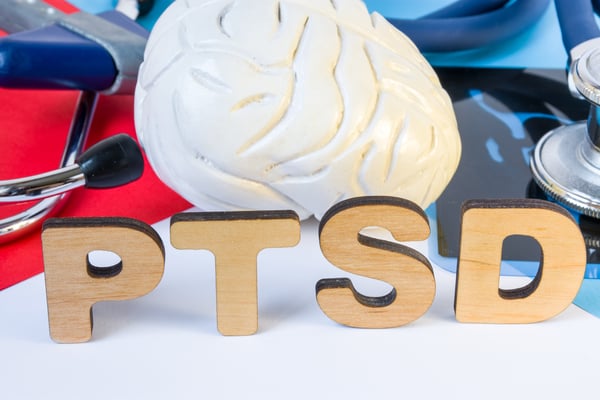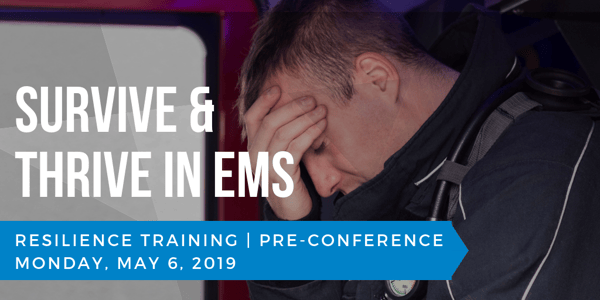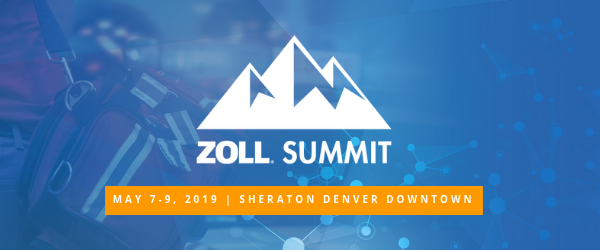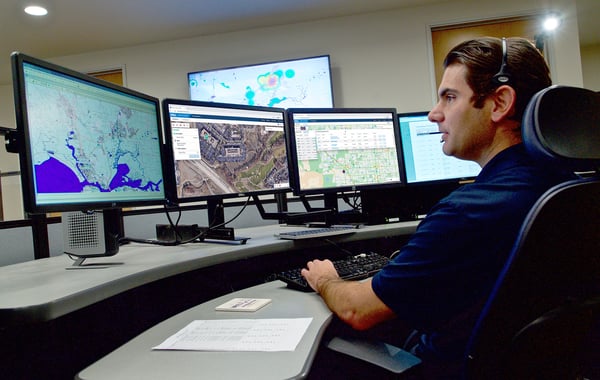Meet the New ZOLL Dispatch and ZOLL Respond CAD Solution
Behind the Scenes with Anthony Guerne
ZOLL SUMMIT Speaker Series PTSD Panel Discussion - A View From Different Perspectives

ZOLL SUMMIT Speaker Series
PTSD Panel Discussion - A View From Different Perspectives
Anthony Guerne, M.S., NRP, CHSE, has been involved in EMS since he was 19 years old when he joined the local volunteer fire department in 1990. Not having any exposure to EMS until that point in his life, he remembers responding to his first fire vividly. It was only a month after he took his oath to protect and defend the citizens of his community. As fate would have it, the blaze claimed the house of a high school friend, and his mother tragically lost her life in the fire.
After that call, the Critical Incidence Stress Debriefing (CISD) team, run by the county, came to their firehouse to talk to all of the firefighters present that day. Though Guerne was only a rookie in charge of manning the hydrant, he recalls the strained faces of his colleagues as they discussed the details with CISD.
That was the beginning of his education into the realities of how difficult this job can be.
Guerne will join several other panelists in a moderator led discussion on PTSD during ZOLL SUMMIT 2019. For more information, check out the agenda here:
Q: What are you most excited about for ZOLL SUMMIT 2019?
A: The knowledge that PTSD, mental health awareness, and fatigue in EMS providers is a major focus at ZOLL SUMMIT 2019 proves to me that we are all starting to come together to fight some of the issues that affect the health and well-being of our colleagues
Q: Tell us a bit about your history in EMS, and what you’re up to now.
A: After becoming a volunteer firefighter in 1990, I quickly enrolled in an EMT class and in 1992 became certified. Determined to continue my education, I moved on to paramedic school and in December of 1994, received my certification as a New York State Paramedic. To this day, that is one of the proudest moments of my life.
I worked a few different jobs within the City of New York, and progressed to a critical care transport specialist. In 2008, I unfortunately suffered a severe back injury that required surgery. My career as a “street” medic wasn’t over, but I was severely limited and started to pursue other avenues. I had completed a Bachelor’s Degree, so I took a leap of faith and jumped into the world of medical simulation at a medical school. Of course, I couldn’t stop working as a medic, so I kept a per-diem job.
I received a Master’s Degree in medical education, and eventually took a position at the Adelphi University College of Nursing and Public Health, where I am still to this day. I am the Lead Paramedic with the Commack Volunteer Ambulance Corps. My job is to supervise what I truly believe is the best group of paramedics in Suffolk County. They make my job very easy.

Q: Can you elaborate a bit about your background in mental health and why you specifically focus on PTSD?
A: My crusade against the PTSD stigma stems from a long career of watching many colleagues and friends struggle mightily with the “suck it up” culture that we cultivated in EMS. It was cool to be burnt out, cool to be cold. But that led to a greater problem: hidden demons. Only recently was I able to publicly admit to having been sexually abused by a family member from a young age. This deepened my commitment to the mantra that “you never know who you are sitting next to.”
Q: Why do you think PTSD and mental health for EMS professionals has become one of the most important topics of the year?
A: As an industry, we must believe that this is a true problem that cannot be discarded and swept under the table. The culture in EMS has made this a huge obstacle for all of us. Understanding there is a problem is the first step to fixing it. I think we have made tremendous strides, but there is still work to be done.
Q: What’s the most common question people ask you about PTSD?
A: The most common question I get is “how did you get better?” There is no definitive answer to that, because similar to other mental health issues, PTSD doesn’t have a cure. There might not be an antidote, but there are effective ways to manage it and live a healthy life with it.
- The first thing anyone should do, without question, is to find an expert to help you through it. Talking and communicating with family and friends can certainly make a difference, but only a professional can truly help you heal.
- Medication, yoga, meditation, exercise – these are also good ways to combat what you are fighting, but only when done in addition to talking with an expert in PTSD.

Q: What’s the biggest obstacle to dealing with / managing it?
A: Understanding that factors like underlying mental health conditions, past trauma, and childhood events can all greatly exacerbate a condition like PTSD is half the battle. My therapy dealt more with confronting the trauma of my childhood, and then the PTSD symptoms I was experiencing from the job. I got better because I was dedicated to getting better. I hit rock bottom and I knew I never wanted to feel like that again. I committed myself to not only mental health well-being, but physical as well.
Q: What’s the most common misconception about it?
A: The most common misconception is that you can just “suck it up”. This definitely does not work. What we see in EMS, or any of the emergency services for that matter, is tragic and difficult. People shouldn’t have to suck it up. They should be able to have feelings. We are human beings. Humans have emotions, and those emotions should never be denied, or discounted.
Q: You’ll be speaking on our PTSD panel. Who should attend the panel, and why?
A: I am honored and excited to be on this panel. Hearing from professionals who have experienced it, who have conquered it, those who have helped others, and simply those who refuse to accept the suck it up culture is enlightening to all providers of all levels. This panel is a dedicated group of professionals trying to make a difference.
Margaret Mead once wrote; “Never doubt that a small group of thoughtful, committed citizens can change the world; indeed it is the only thing that ever has.”
Commitment to each other, coming together to reach a goal – these are the things that we need across our entire profession.
Related Posts
Collect More Revenue Faster: The Pivotal Role of Clear, Concise, and Complete Documentation
ZOLL Pulse Blog
Subscribe to our blog and receive quality content that makes your job as an EMS & fire, hospital, or AR professional easier.
ZOLL Pulse Blog
Subscribe to our blog and receive quality content that makes your job as an EMS, fire, hospital, or AR professional easier.






